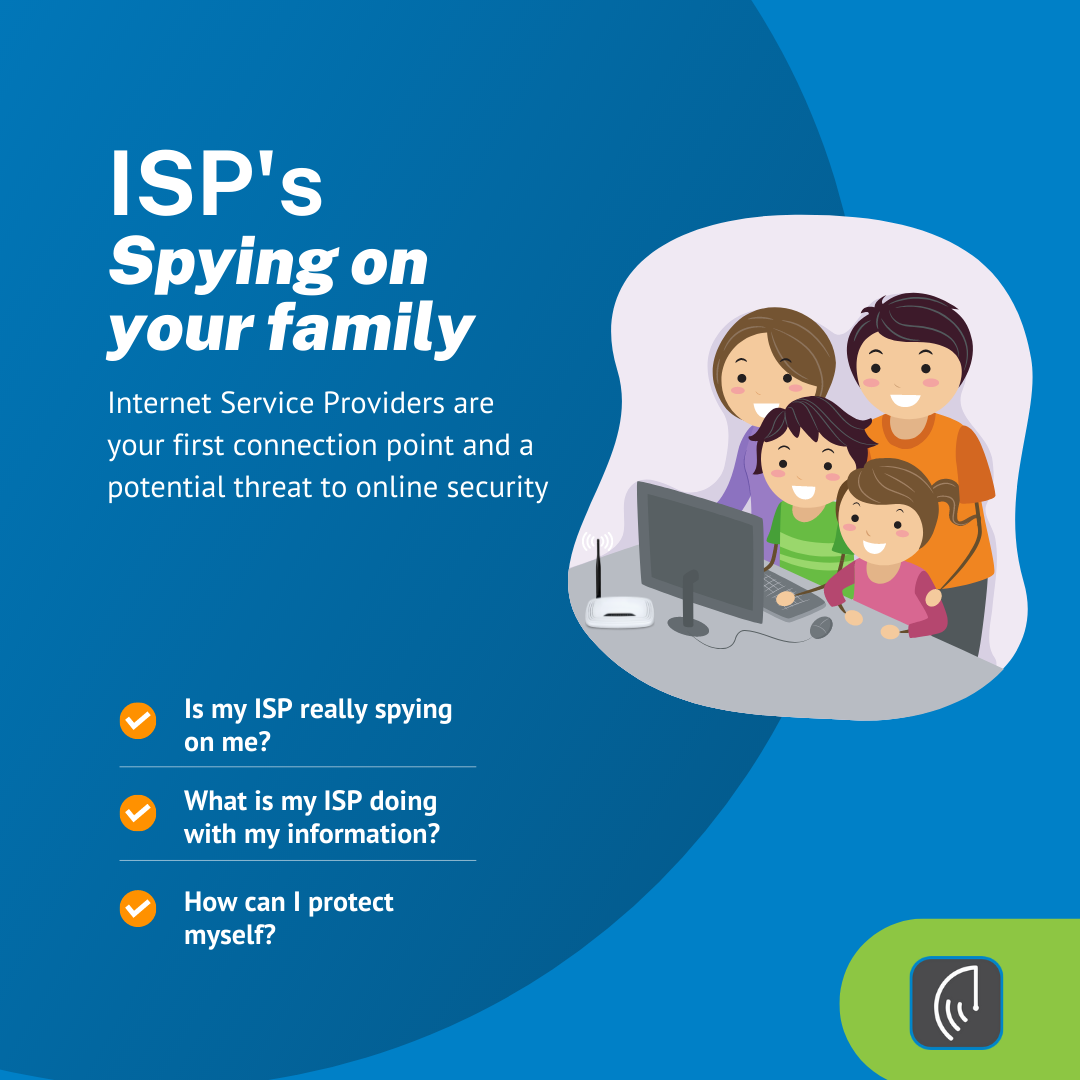ISP’s are spying on your family. But what’s an ISP and why should I care? An ISP, or Internet Service Provider, is a company that lets you access the internet from home, usually via a monthly subscription. It’s like a cable company, but instead of connecting you with TV channels, an ISP connects you to the internet. An ISP may sell one or more types of internet service, also called connection types.
Your Internet Service Provider (ISP) is the first connection point between the Internet and your computer. And you should know that ISPs represent one of the many potential threats to online security. After all, you connect to the outside world through their network. Your IP address is the one they assign to you for the duration of your session.
Is my ISP really spying on me?
In a word, yes. Your ISP is likely looking at the websites you visit online. They track you so they can sell your browsing history to other companies. Ever notice how creepy ads follow you around the Internet? This is because you are being tracked.
ISPs can see almost everything you’re doing online. They know the websites you visit, your streaming services, and more. And if you’re not using an encrypted connection, they may even be able to see the usernames and passwords you are using.
What is my ISP doing with my information?
Here in the U.S. ISPs have had the right to sell your private browsing history since 2017, as long as they anonymized your personal data. Major ISPs like AT&T, Comcast, and Verizon said their customers would be able to opt out of data collection, but they make it really hard to do that. Resource: How to Opt Out of your ISP’s Data Collection
Also, ISPs learn a lot by analyzing metadata, which provides them with general information about the kind of user you are. For instance, they could get information on size, timing, and destination of your data packets, which could tell them whether you’re browsing the web, using Skype, downloading files with BitTorrent or streaming movies from Netflix.
This means that ISPs may have more information about you than Google or Facebook, which we all know stores tremendous amounts of data about us.
A good rule of thumb: if you are not taking steps to protect your privacy online, then you should assume that everything you do online, including your emails, are being tracked.
How can I protect myself?
ISPs obviously know a lot about you, but the good news is that you can do a few things to protect your privacy online:
- Only visit secured websites: When you visit a secure website (they start with https://), ISPs can’t see what you’re doing there. The entire communication between you and the secure website you are visiting is encrypted, leaving your ISPs with ciphers it can’t read. The good news is that the most popular services are using HTTPS connections these days.
- Use a VPN like Private WiFi – Using a VPN like Private WiFi on all of your devices is the best way to mask what you do online, including from your ISP. Private WiFi encrypts the connection and routes your connection through the VPN’s server. This encryption prevents your ISP from seeing what you’re doing online.
So what are you waiting for? ISP’s – Spying on your family but defend-id can help secure your connection with Private WiFi. Contact us today to learn more!
Related Articles:
Home WiFi isn’t Safe from Hackers
I use a VPN whenever I work remotely
